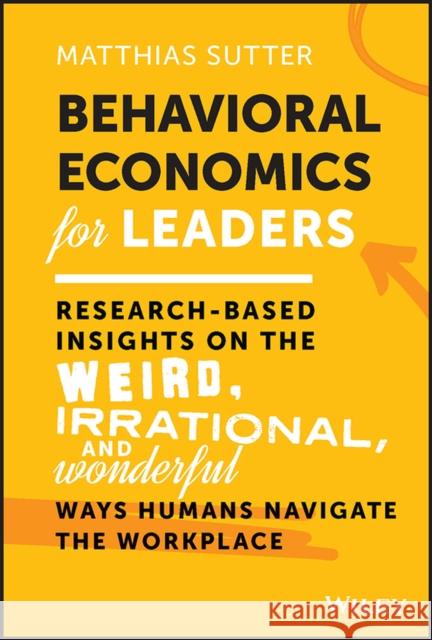Behavioral Economics for Leaders: Research-Based Insights on the Weird, Irrational, and Wonderful Ways Humans Navigate the Workplace » książka
topmenu
Behavioral Economics for Leaders: Research-Based Insights on the Weird, Irrational, and Wonderful Ways Humans Navigate the Workplace
ISBN-13: 9781119982975 / Angielski / Twarda / 2023 / 256 str.
Behavioral Economics for Leaders: Research-Based Insights on the Weird, Irrational, and Wonderful Ways Humans Navigate the Workplace
ISBN-13: 9781119982975 / Angielski / Twarda / 2023 / 256 str.
cena 113,37
(netto: 107,97 VAT: 5%)
Najniższa cena z 30 dni: 111,98
(netto: 107,97 VAT: 5%)
Najniższa cena z 30 dni: 111,98
Termin realizacji zamówienia:
ok. 30 dni roboczych.
ok. 30 dni roboczych.
Darmowa dostawa!
Kategorie:
Kategorie BISAC:
Wydawca:
John Wiley & Sons Inc
Język:
Angielski
ISBN-13:
9781119982975
Rok wydania:
2023
Ilość stron:
256
Waga:
0.67 kg
Oprawa:
Twarda
Dodatkowe informacje:
Bibliografia











